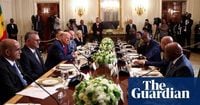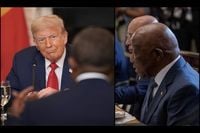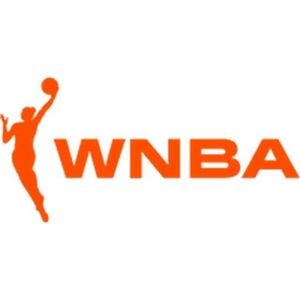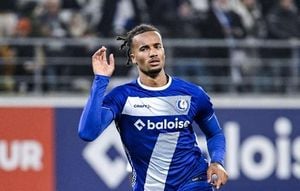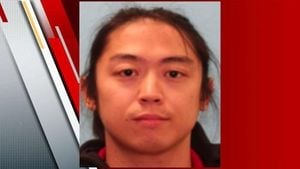On Wednesday, July 9, 2025, President Donald Trump hosted a meeting at the White House with leaders from several African nations, including Liberia, Gabon, Guinea-Bissau, Mauritania, and Senegal. During this gathering, Trump praised Liberian President Joseph Boakai for his command of the English language, a compliment that quickly sparked widespread discussion and criticism due to its apparent ignorance of Liberia's linguistic and historical background.
As President Boakai concluded his remarks, delivered in English, Trump turned to him and said, "Thank you, and such good English. Where did you learn to speak so beautifully? Where were you educated?" Boakai, who spoke softly and with a polite chuckle, replied that he was educated in Liberia. Trump pressed further, asking, "In Liberia?" to which Boakai confirmed, "Yes, sir." Trump responded, "That's very interesting. It's beautiful English. I have people at this table who can't speak nearly as well." This exchange, captured during the White House meeting, highlighted a surprising lack of awareness about Liberia's official language, which is English.
Liberia’s history is deeply intertwined with the United States. Founded in 1822, Liberia was established as a colony for freed Black Americans through the efforts of the American Colonization Society, a group composed of white men from both Northern and Southern states, including slave owners. While some members sought to preserve slavery by relocating free Black people, others hoped to gradually dismantle slavery but doubted racial integration in the U.S. The colony became a destination for thousands of these freed individuals, who settled along Africa's west coast and declared independence in 1847.
English was adopted as Liberia's official language from its inception, modeled after American governance and culture. The country’s capital, Monrovia, was named after James Monroe, the fifth president of the United States and a supporter of the colonization effort. Liberia is Africa’s oldest modern republic and the world’s second-oldest Black-led republic, following Haiti’s establishment in 1804. Despite having over 20 indigenous languages spoken across its diverse population, English remains the lingua franca and the language of government, education, and formal communication.
President Boakai himself has a remarkable personal history. Born in a remote village, he twice walked more than 300 miles from Warsonga to Monrovia in pursuit of education, ultimately enrolling at the College of West Africa, one of Liberia’s premier secondary schools. Fluent in English and conversant in local languages like Mendi and Kissi, Boakai embodies Liberia’s complex cultural tapestry.
Trump's comments drew immediate backlash on social media and from political figures. Representative Jasmine Crockett from Texas condemned the remarks as "peak ignorance," pointing out that English is Liberia’s official language and criticizing the question as diplomatically inappropriate. Former Representative Adam Kinzinger labeled the exchange "ridiculous" and recalled Trump's previous controversial remarks, including his 2018 reference to Haiti and African nations as "shithole countries," which had already strained U.S. relations with those countries.
Online commentators highlighted the historical and neo-colonial undertones of Trump's question. One user compared praising a Liberian leader for speaking English to visiting Quebec and asking where someone learned French, underscoring the absurdity of the inquiry. Others noted that while English is official, Liberia’s multilingual reality might explain some confusion, though this did little to soften criticism of the president’s apparent lack of preparation.
Despite the controversy, the meeting itself was framed by Trump as a historic moment for U.S.-Africa relations. White House spokesperson Anna Kelly described Trump’s remarks as a "heartfelt compliment during a meeting that marked a historic moment for U.S.-Africa relations." At the gathering, Trump emphasized shifting U.S. policy from aid to trade, stating, "There’s great economic potential in Africa, like few other places. In many ways, in the long run, this will be far more effective and sustainable and beneficial than anything else that we can be doing together." He expressed a desire to strengthen friendships with African nations and even hinted at plans to visit the continent.
Other African leaders present praised the United States and Trump’s efforts to broker peace deals globally. Gabon’s President Brice Clotaire Oligui Nguema echoed a common theme, saying, "We are not poor countries. We are rich countries when it comes to raw materials. But we need partners to support us and help us develop those resources." He invited U.S. investment, warning that without American involvement, other countries might step in.
Trump’s interaction with Boakai was not an isolated incident of commenting on foreign leaders’ English proficiency. Earlier in 2025, Trump publicly remarked on the accents and English skills of reporters from India and Afghanistan, sometimes expressing difficulty understanding them despite complimenting their voices or accents. These moments reveal a pattern in the president’s approach to language and diplomacy that has drawn both amusement and criticism.
In the end, the July 9 meeting underscored both the opportunities and challenges in U.S.-Africa relations. While there was clear enthusiasm from African leaders for increased trade and partnership, the incident involving Trump’s compliment to Boakai exposed gaps in cultural and historical awareness at the highest levels of U.S. government. As Africa continues to rise as a critical player on the global stage, such moments serve as reminders of the importance of informed and respectful diplomacy.
